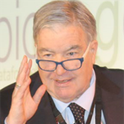
Different factors have contributed to what is known as the Contemporary Food Paradox. To express this more graphically, let us say that more than a third of the food in the world is wasted while almost 800 million people suffer extreme malnutrition. Now the Millennium Goals’ deadline expired, we must set the targets for the Sustainable Development Goals for the next decades. Many national and international organizations point out the imperative need to give an adequate reply to this paradox.
Food waste has important economic and environmental implications and, in addition, there is an undeniable ethical and social justice aspect. Beyond the figures of hunger and malnutrition, mothers, the unweaned, and small children die prematurely and young people experience a deficient physical and mental development. All these people, members of our human family, oblige us to recognize their inherent dignity as human beings and their equal and inalienable rights.
In this work, academics from fifteen countries and different disciplines discuss proposals and strategies in order to respond to the desire for a world without waste or food poverty.
- contemporary food paradox,
- food waste,
- food poverty
Available at: http://works.bepress.com/luis_gonzalez_vaque/196/
